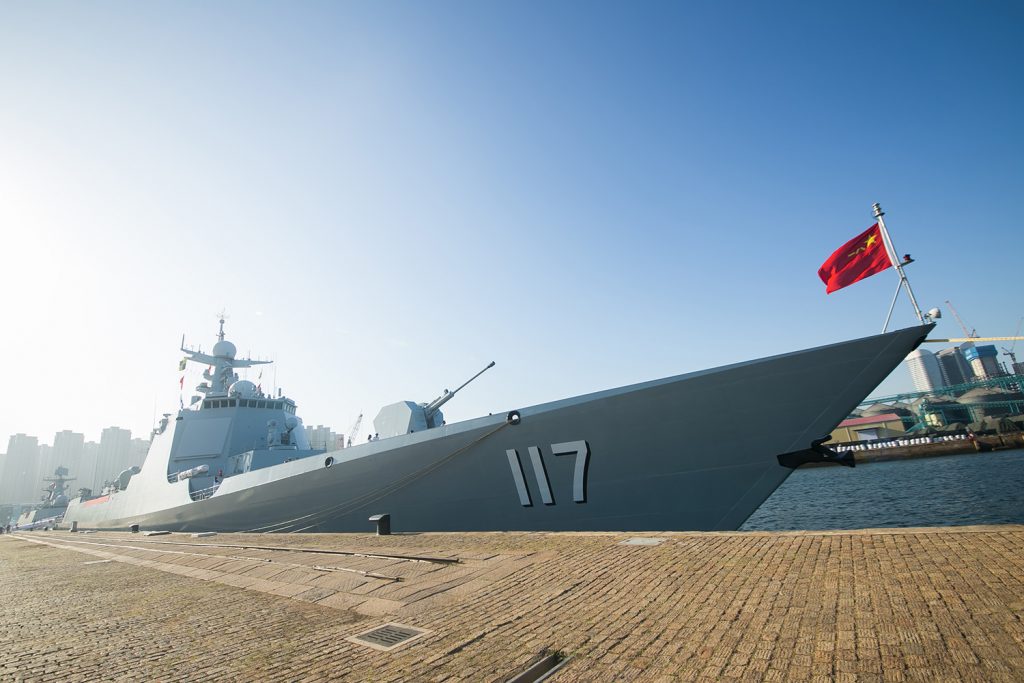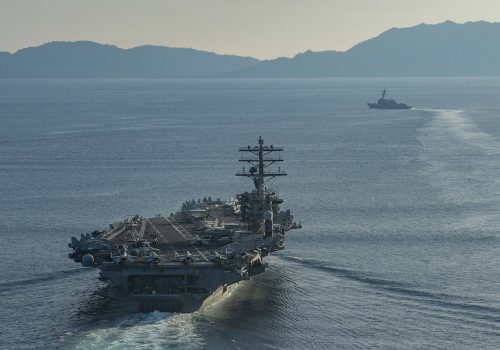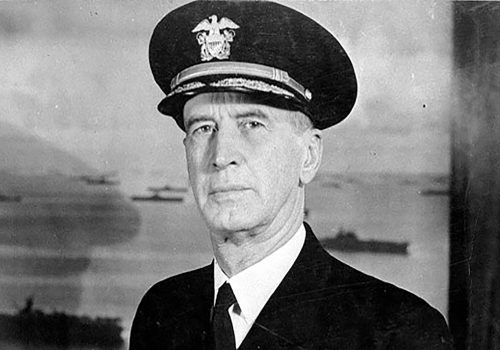To many observers in the United States, China is America’s main threat and enemy. The litany of wrongdoings and evidence of China’s malevolence is long. Theft of intellectual property, militarization of tiny islets off its coasts in international waters; repression from Hong Kong to the Uighurs, hostile penetration of American society and, of course, the COVID-19 pandemic, which started in Wuhan, are among China’s obvious transgressions.
One solution, agreed to by Republicans and Democrats, is to increase America’s military forces. In particular, the plans for Battle Force 2045 and a Navy almost double its current size of about 290 ships is illustrative. And the US Army and Marine Corps have shifted strategic focus to the Pacific and a potential conflict with China.
October 21 marks the 215th anniversary of the greatest naval battle of the modern era and certainly since the Battle of Salamis in 480 BC. On this day, Vice Admiral Lord Horatio Nelson hoisted his famous signal from the starboard yardarm of his flagship HMS Victory: “England expects that every man will do his duty.” Then the Royal Navy obliterated the combined French and Spanish fleet under the command of French Admiral Pierre Villeneuve at the Battle of Trafalgar.
Of thirty-three Franco-Spanish ships of the line, twenty-one were captured and one sunk and about 4,500 sailors were killed. The Royal Navy lost no ships and had only one-tenth the casualties with one major exception: Nelson died of wounds.
Perhaps the US Navy has similar visions of a future sea battle against China’s PLA Navy. And a similar outcome could occur. However, Trafalgar was fought in 1805. It would take a full decade until Napoleon Bonaparte and France would finally be defeated at the Battle of Waterloo in 1815. No matter how decisive British sea power was in commanding the oceans, the war had to be won on the ground.
The current US National Defense Strategy continues the Obama administration “four plus one” policy focusing on a great power competition with China and Russia. The Pentagon is directed “to deter and, if war comes, defeat” a list of adversaries topped by China and Russia. But nowhere are specific definitions to be found of what “compete, deter, and defeat” mean; how each is to be achieved; and how success or failure is measured.
One suspects that the Cold War maxim of ensuring deterrence by virtue of maintaining countervailing military strength suggests that war with China will not arise as the risks are too great. That proposition obviously worked during the Cold War when thermonuclear war would have been existential and neither East nor West had irreparable differences that only could have been resolved by military force. But does that logic still apply today? That, to quote Shakespeare, is the question.
Should war break out between China and America and if the PLA Navy was eviscerated as Villeneuve’s fleet was, would that make any strategic difference? Then, London had allies in Europe. The Duke of Wellington, the other great military commander of the day, had bled the French Army badly in the Peninsula Campaign in Spain, greatly weakening Napoleon. And if Gebhard Leberecht von Blucher had not appeared at the critical moment, the “close run thing,” as Wellington later described Waterloo, could have gone the other way.
Trafalgar also provided other strategic and tactical insights. HMS Victory was forty-six years old at the time of the battle, far more than the life expectancy of modern warships and is still in commission moored in Portsmouth in the south of England as an historical monument. Realizing the only way to defeat a continental power was to win on the periphery, this was Britain’s strategy. And it depended on allies.
My concerns with the current identification of China as an adversary are: First, there is no apparent off-ramp to de-escalate a deteriorating relationship. Second, as great power competition in 1914 was a major cause of World War I, this one could become a self-fulfilling prophecy. Third, as two world wars and a cold one should have taught us, allies are crucial to success and to victory. How many allies would we have if there were a naval confrontation—or worse, a major conflict—with China?
This history lesson does not suggest that the United States should not and cannot compete with China economically, diplomatically, ideologically, strategically, politically, and technologically. But over-militarizing policy, as we did from Vietnam to the second Iraq war, almost always induces some form of failure. And, in areas of vital mutual interest from climate change and terrorism to preventing future pandemics, cooperation cannot be dismissed.
In 1805, England had Pitt the Younger as prime minister and Nelson and Wellington. Who are America’s Pitt, Nelson, and Wellington today?
Harlan Ullman is a senior adviser at the Atlantic Council and author of the upcoming book, “The Fifth Horseman: To Be Feared, Friended or Fought in a MAD-Driven Age.”
Further reading:
Image: The thirty-third escort formation to conduct escort missions of protecting vessels in Gulf of Aden set out from Qingdao city, east China's Shandong province, 29 August 2019. fachaoshi



